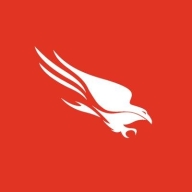


AWS GuardDuty and CrowdStrike Falcon Cloud Security compete in the cloud security category. AWS GuardDuty has an upper hand with its deep integration into the AWS ecosystem, while CrowdStrike excels in endpoint security.
Features: AWS GuardDuty integrates seamlessly with AWS services like CloudTrail and VPC Flow Logs, providing robust threat detection. It protects S3 data events effectively and has introduced Kubernetes monitoring. CrowdStrike Falcon Cloud Security provides strong endpoint security with its lightweight agent, utilizes machine learning for effective threat hunting, and offers remote threat response capabilities.
Room for Improvement: AWS GuardDuty requires enhancements in dashboard analytics, cost transparency, and automation for threat remediation. Users also seek better threat intelligence data and support for newer AWS services. CrowdStrike Falcon faces pricing concerns and needs improvement in support portals, forensic capabilities, and Linux support.
Ease of Deployment and Customer Service: Both AWS GuardDuty and CrowdStrike Falcon support diverse deployment environments. GuardDuty is optimized for cloud integration, with generally positive feedback on Amazon's responsive support. CrowdStrike Falcon is easy to deploy thanks to its cloud-first architecture, although users request better technical assistance.
Pricing and ROI: AWS GuardDuty uses a pay-as-you-go model, which is advantageous for scalability but can become costly with extensive usage. It improves security posture, enhancing customer trust as a ROI. CrowdStrike Falcon is seen as expensive, with its advanced features justifying the cost. It provides ROI through comprehensive protection and is considered competitive for scaling needs.



SentinelOne Singularity Cloud Security protects cloud workloads, offering advanced threat detection and automated response. It integrates seamlessly with cloud environments and secures containerized applications and virtual machines against vulnerabilities.
SentinelOne Singularity Cloud Security is renowned for its efficiency in mitigating threats in real-time. The platform integrates effortlessly with existing cloud environments, ensuring robust cloud security management with minimal manual intervention. Securing containerized applications and virtual machines, it excels in threat intelligence and endpoint protection. However, improvements are needed in performance during high workload periods, and more integrations with third-party tools and better documentation would be beneficial. Users often find the installation process complex, support response times slow, and the dashboard's navigation unintuitive.
What are the key features of SentinelOne Singularity Cloud Security?In specific industries, SentinelOne Singularity Cloud Security is implemented to safeguard critical data and infrastructure. Organizations in finance, healthcare, and technology depend on its real-time threat detection and automated response to protect sensitive information. Its ability to secure containerized applications and virtual machines is particularly valuable in dynamic environments where rapid scaling is necessary.
Amazon Guard Duty is a continuous cloud security monitoring service that consistently monitors and administers several data sources. These include AWS CloudTrail data events for EKS (Elastic Kubernetes Service) audit logs, VPC (Virtual Private Cloud) flow logs, DNS (Domain Name System) logs, S3 (Simple Cloud Storage), and AWS CloudTrail event logs.
Amazon GuardDuty intuitively uses threat intelligence data - such as lists of malicious domains and IP addresses - and ML (machine learning) to quickly discover suspicious and problematic activity in a user's AWS ecosystem. Activities may include concerns such as interactions with malicious IP addresses or domains, exposed credentials usage, or changes and/or escalation of privileges.
GuardDuty is able to easily determine problematic AWS EC2 (Elastic Compute Cloud) instances delivering malware or mining bitcoin. It is also able to trace AWS account access history for evidence of destabilization. such as suspicious API calls resulting in changing password policies to minimize password strength or anomalous infrastructure deployments in new or different never-used regions.
GuardDuty will continually alert users regarding their AWS environment status and will send the security discoveries to the GuardDuty dashboard or Amazon CloudWatch events for users to view.
Users can access GuardDuty via:
Amazon Elastic Kubernetes Service (Amazon EKS)
Kubernetes protection is an optional add-on in Amazon GuardDuty. This tool is able to discover malicious behavior and possible destabilization of an organization's Kubernetes clusters inside of Amazon Elastic Kubernetes Service (Amazon EKS).
When Amazon EKS is activated, GuardDuty will actively use various data sources to discover potential risks against Kubernetes API. When Kubernetes protection is enabled, GuardDuty uses optional data sources to detect threats against Kubernetes API.
Kubernetes audit logs are a Kubernetes feature that captures historical API activity from applications, the control plane, users, and endpoints. GuardDuty collates these logs from Amazon EKS to create Kubernetes discoveries for the organization's Amazon EKS assets; there is no need to store or turn on the logs.
As long as Kubernetes protection remains activated, GuardDuty will continuously dissect Kubernetes data sources from the Amazon EKS clusters to ensure no suspicious or anomalous behavior is taking place.
Amazon Simple Cloud Storage (S3) Protection
Amazon S3 allows Amazon GuardDuty to actively audit object-level API processes to discover possible security threats to data inside an organization's S3 buckets. GuardDuty continually audits risk to the organization’s S3 assets by carefully dissecting AWS CloudTrail management events and AWS CloudTrail S3 data events. These tools are continually auditing various CloudTrail management events for potential suspicious activities that affect S3 buckets, such as PutBucketReplication, DeleteBucket, ListBucket, and data events for S3 object-level API processes, such as PutObject, GetObject, ListObject, and DeleteObject.
Reviews from Real Users
“The most valuable features are the single system for data collection and the alert mechanisms. Prior to using GuardDuty, we had multiple systems to collect data and put it in a centralized location so we could look into it. Now we don't need to do that anymore as GuardDuty does it for us.” - Arunkumar A., Information Security Manager at Tata Consultancy Services
CrowdStrike Falcon Cloud Security is a platform of cloud security solutions aimed at protecting organizations from breaches while simplifying cloud security management. The unified platform combines several cloud security functionalities for comprehensive protection. Built on the CrowdStrike Falcon Platform, it leverages the powerful agent and technology used in CrowdStrike's renowned endpoint protection solutions, extending its capabilities seamlessly to cloud environments.
CrowdStrike Falcon Cloud Security is designed to be a shield for the cloud infrastructure. One of its key strengths is its ability to monitor cloud workloads for potential breaches and attacks. It doesn't matter if you're running virtual machines, containers, or a combination of both across different cloud providers – Falcon Cloud Security offers visibility and protection. Additionally, it works tirelessly to pinpoint misconfigurations or vulnerabilities in your cloud setup, proactively stopping issues before they become full-blown security incidents. Compliance becomes easier too, as it can check if your deployments meet the requirements of various industry standards and regulations.
If you heavily utilize containers and Kubernetes, Falcon Cloud Security has you covered. It delves deep into container images and running containers to spot weaknesses and potential threats, helping you secure your containerized applications from the moment they're developed to when they're up and running. Finally, it tackles the often messy world of permissions in the cloud. Falcon Cloud Security analyzes identities and their attached permissions, ensuring that the principle of least privilege is followed and sensitive data isn't exposed due to overly broad access rights.
In essence, CrowdStrike Falcon Cloud Security aims to simplify the complexities of cloud security by consolidating tools, providing a centralized view of your risks and threats, and delivering advanced protection that blends seamlessly with your development processes.
Based on the interviews we conducted with CrowdStrike Falcon Cloud Security users, overall, the sentiment is positive. Users praise the solution's efficacy in detecting and preventing threats, its ease of use, scalability, stability, and integration with existing systems. There were also mentions of areas for improvement, such as the pricing, the user interface, and customer support.
We monitor all Cloud Workload Protection Platforms (CWPP) reviews to prevent fraudulent reviews and keep review quality high. We do not post reviews by company employees or direct competitors. We validate each review for authenticity via cross-reference with LinkedIn, and personal follow-up with the reviewer when necessary.